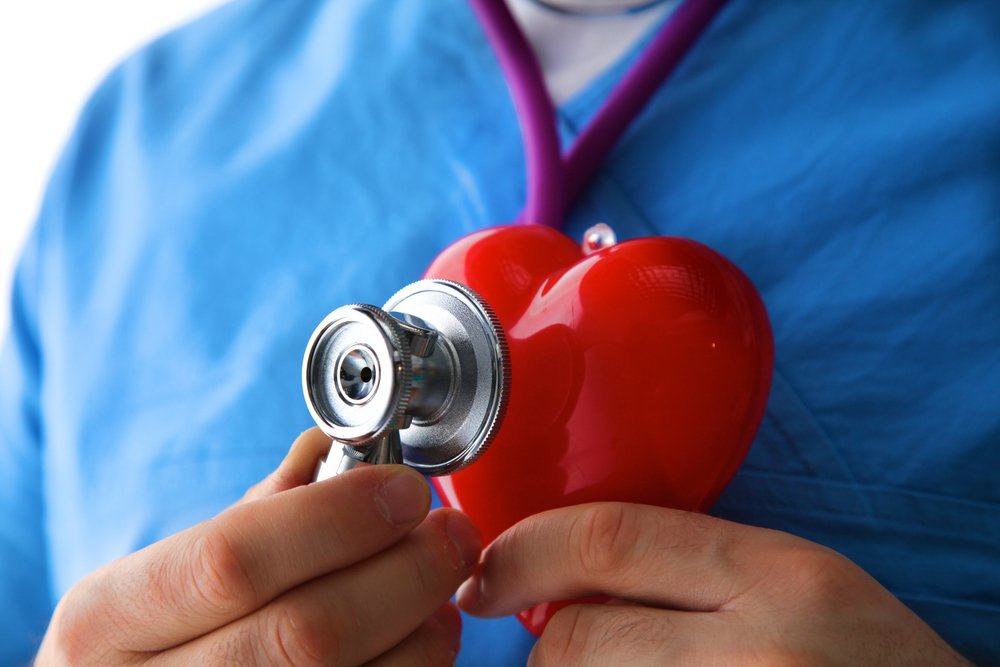Contents:
- Medical Video: 8 EVERYDAY HABITS THAT DAMAGE YOUR HEALTH
- 1. Watch television too long
- 2. Eat too much
- 3. Smoking
- 4. Rarely eat fruits and vegetables
- 5. Often eat salty snacks
Medical Video: 8 EVERYDAY HABITS THAT DAMAGE YOUR HEALTH
Cardiovascular disease is a disease associated with the heart and blood vessels. In the world, cardiovascular disease and stroke are the main causes of death, with an annual mortality rate of 17.3 million people. In fact, this number is expected to increase until 2030. While in Indonesia, in 2013, the prevalence of coronary heart disease was 0.5% and the prevalence of sacral failure was 0.13%.
Seeing this fact, it is not surprising that the government has made various efforts to increase public awareness in maintaining heart health. And the good news is that to maintain heart health, you can start with a few simple steps, one of which is to consistently lead a healthy lifestyle.
Here are some bad habits for your heart health and how to avoid them.
1. Watch television too long
Currently there are various kinds of entertainment available on television; whether it's soap opera, TV, comedy, or music. As a result, it's not surprising if you like to sit for long in front of the television just to watch your favorite shows. But what you need to know is that sitting for hours in front of the television can increase the risk of heart attack and stroke. In fact, according to a study in Japan, sitting too long while watching TV can increase the risk of death from blood clots in the lungs.
This happens because as long as you watch television, you tend to continue in the same position that is sitting, without any other activities, and this causes your blood circulation to be disrupted. In addition, lack of movement can affect the levels of fat and sugar in the body.
Therefore, if you like to sit for a long time in front of a television, it's a good idea to do a few simple steps to prevent blood clots in your lungs, heart disease or stroke, like the following: after one hour or more while watching TV, you must stand to stretch the muscles, one of them by walking.
2. Eat too much
One of the main risk factors for heart disease is being overweight or obese. According to a study presented at American Heart Association Scientific Sessions in 2000, eating too much could increase the risk of a fourfold heart attack, within two hours of eating.
This can happen because without you realizing it, eating too much can increase your heart rate and blood pressure. Rising blood pressure can increase oxygen demand and create additional burden on the heart. In addition, high blood pressure can break the cholesterol plaque on the artery wall, triggering the formation of clots that can block blood vessels so that it can trigger a heart attack or stroke.
Therefore, try not to overeat - meaning, eat when you are hungry and stop before you are really satiated.
3. Smoking
It is clear that smoking is not good for health, including for your heart health. Smoking can increase blood clotting, which can inhibit blood flow to the heart and contribute to plaque collection in the arteries. In addition, studies also show that smoking is an important risk factor for strokes because inhaling cigarette smoke turns out to produce some effects that damage the cerebrovascular system.
Therefore, one way to prevent heart disease and stroke is to stop smoking.
4. Rarely eat fruits and vegetables
Even though fruit and vegetables are good foods to consume, it turns out that not everyone likes them. In fact, a study has found that people who eat more than five servings of fruits and vegetables a day have a risk of about 20% lower than heart disease and stroke than people who eat less than three servings per day. The reason is because fruits and vegetables contain vitamins, minerals and low-calorie fiber that can help you control your weight and blood pressure.
Therefore, try to like and consume fruits and vegetables for a better heart health.
5. Often eat salty snacks
Salty foods are often appetizing and addictive, including junk food. Though consumption of excess salty food can increase your blood pressure, which is a major risk factor for the occurrence of strokes, kidney failure, and heart attacks. Therefore, you must pay attention to your sodium intake per day. Most of us have to maintain sodium intake below 2,300 milligrams per day, or 1,500 milligrams for those who have high blood pressure.












